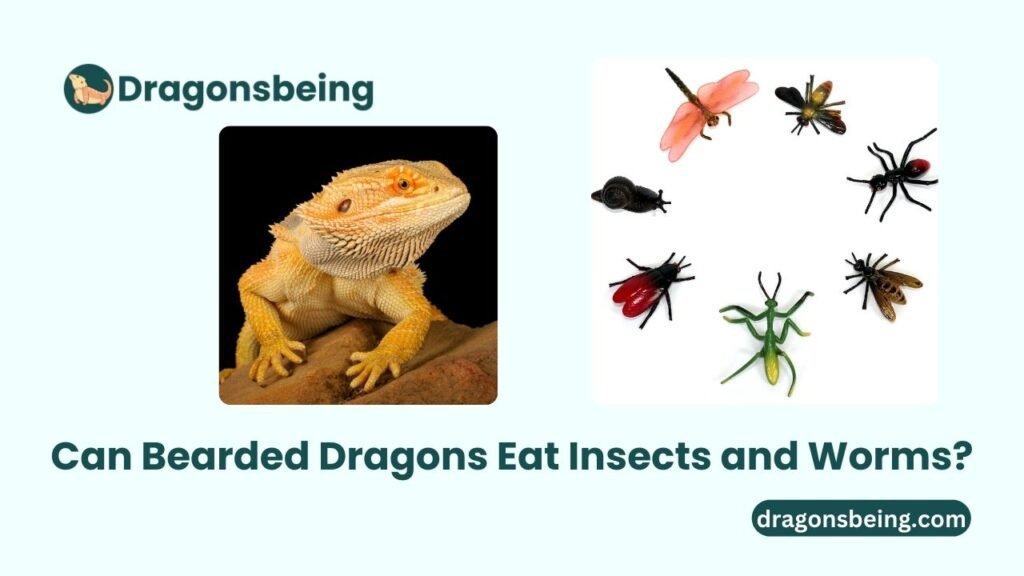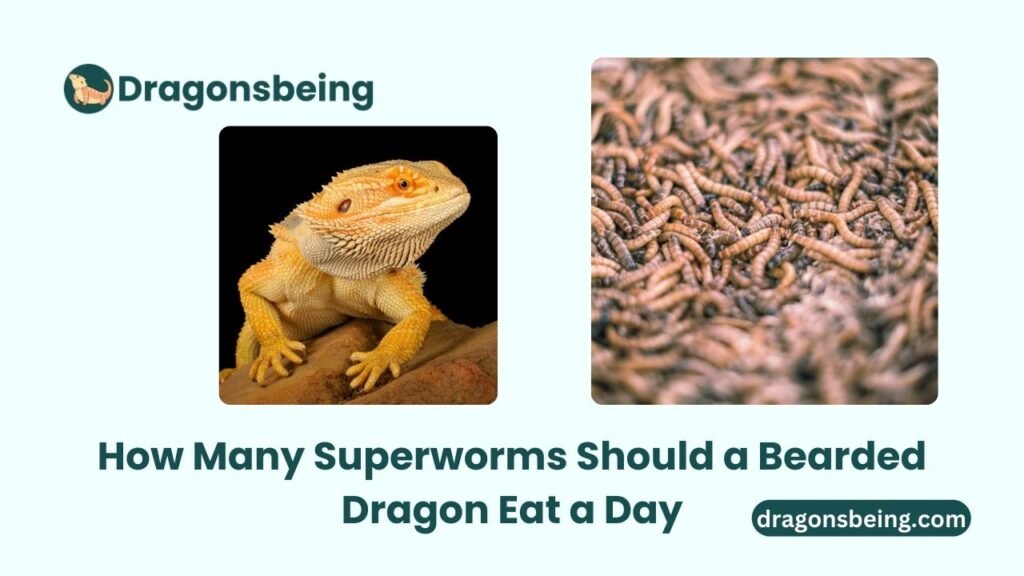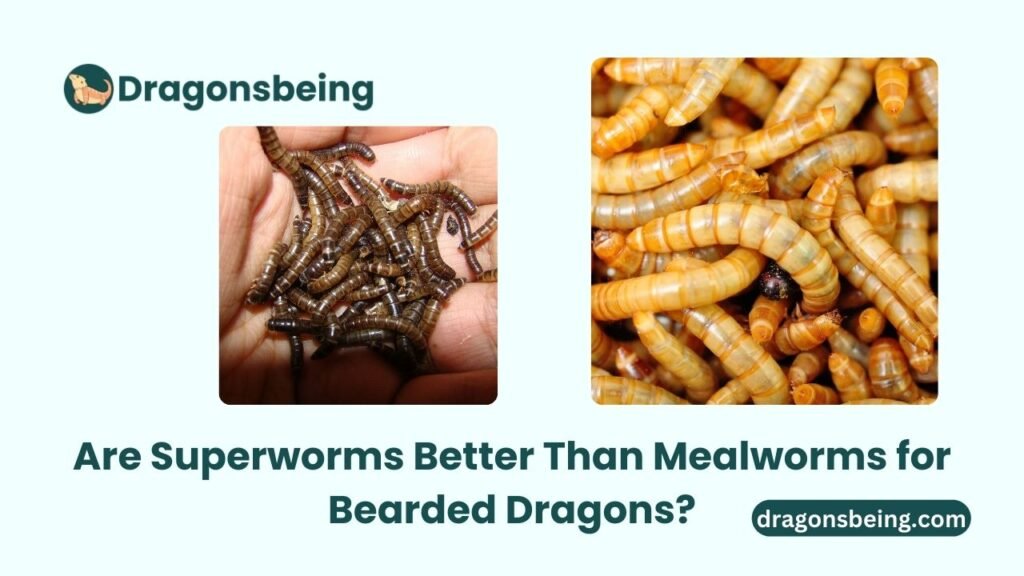Bearded dragons, often affectionately referred to as “beardies,” are popular pets known for their calm demeanor, unique appearance, and diverse diet.
As omnivores, these fascinating reptiles thrive on a combination of plant matter and animal protein.
Among their preferred sources of animal protein are insects and worms, which provide essential nutrients to support their growth, health, and well-being.
In this article, we will explore the various insects and worms that bearded dragons can consume, the nutritional benefits they offer, and important considerations for feeding them to your pet.
Nutritional Needs of Bearded Dragons
Before delving into specific insects and worms, it’s crucial to understand the dietary requirements of bearded dragons. These reptiles need a balanced diet comprising:
- Protein: Essential for growth and muscle development.
- Vitamins and Minerals: Important for immune function, bone health, and overall vitality.
- Fiber: Aids digestion and promotes gut health.
- Water: Hydration is vital for digestion and overall health.
Insects and worms can play a significant role in meeting these nutritional needs. However, not all insects and worms are created equal; some are more nutritious than others, and it’s essential to understand which are safe and beneficial for your bearded dragon.
Insects and Worms Bearded Dragons Can Eat
1. Mealworms
Mealworms, the larvae of the darkling beetle, are a popular choice among bearded dragon owners. They are widely available, easy to handle, and can be offered live or dried.
Nutritional Profile:
- High in protein (approximately 20-25%).
- Contains healthy fats (approximately 13-15%).
Considerations: While mealworms are nutritious, they are high in fat, which can lead to obesity if fed in excess. It’s best to offer mealworms as an occasional treat rather than a staple food. Additionally, they have a hard exoskeleton that may be challenging for younger or less aggressive bearded dragons to digest.
2. Nightcrawlers
Nightcrawlers, or earthworms, are another excellent food source for bearded dragons. These worms are rich in protein and moisture, making them a nutritious addition to your beardie’s diet.
Nutritional Profile:
- High in protein (approximately 60-70%).
- Low in fat.
Benefits: Nightcrawlers provide hydration and are generally easier to digest than mealworms due to their softer bodies. They also contribute to a balanced diet and can help keep your bearded dragon hydrated.
Considerations: Always source nightcrawlers from reliable sources, as wild-caught worms may have been exposed to pesticides or parasites. Additionally, ensure they are thoroughly washed before feeding to remove any contaminants.
3. Superworms
Superworms are the larvae of the Zophobas morio beetle and are often larger than mealworms. They are another protein-rich option for bearded dragons.
Nutritional Profile:
- High in protein (approximately 20-25%).
- Contains higher fat content than mealworms (approximately 20%).
Benefits: Superworms can stimulate your bearded dragon’s hunting instincts due to their larger size and active movement. They can be fed to adult bearded dragons as a part of a varied diet.
Considerations: Similar to mealworms, superworms should be fed in moderation due to their fat content. They can also be more challenging for juvenile dragons to digest. Ensure they are gut-loaded (fed nutritious food before being offered to your pet) to maximize their nutritional value.
4. Other Worms and Insects
Beyond mealworms, nightcrawlers, and superworms, there are various other worms and insects that bearded dragons can safely consume. These include:
- Crickets: A staple in many bearded dragon diets, crickets are high in protein and easy to find.
- Dubia Roaches: A nutrient-rich option, they are low in fat and easy to digest.
- Waxworms: These should be treated as treats due to their high fat content.
- Silkworms: High in protein and moisture, these are another excellent choice for hydration and nutrition.
How to Safely Feed Insects and Worms to Your Bearded Dragon
Feeding insects and worms to your bearded dragon requires some preparation to ensure their safety and nutritional value. Here are some tips for safe feeding:
Gut Loading
Gut loading is the practice of feeding your insects nutritious food before offering them to your bearded dragon. This process ensures that the insects provide additional nutrients, vitamins, and minerals when consumed.
Variety is Key
A varied diet is essential for the health of your bearded dragon. Offer different types of insects and worms along with fresh vegetables and greens. This variety helps prevent nutritional deficiencies and keeps mealtime interesting for your pet.
Avoid Wild-Caught Insects
While it might be tempting to catch insects from your backyard, it’s essential to avoid wild-caught insects. They may carry pesticides, parasites, or diseases harmful to your bearded dragon. Always source insects from reputable suppliers.
Monitor Feeding Habits
Keep an eye on your bearded dragon’s eating habits. If they refuse certain insects or worms, it may be a sign that they need a different type of protein source or that the insects are too large for them to handle. Adjust their diet accordingly.
Clean and Fresh
Ensure that all insects and worms are clean and fresh before offering them to your bearded dragon. Remove any uneaten insects from the enclosure after a few hours to prevent stress or injury to your pet.
Conclusion
Insects and worms are an essential component of a balanced diet for bearded dragons, providing the necessary protein, hydration, and nutrients for their health and growth.
Mealworms, nightcrawlers, superworms, and various other worms and insects can all be beneficial when included in moderation and as part of a varied diet.
Remember to always source insects from reputable suppliers, gut load them for added nutrition, and monitor your bearded dragon’s eating habits.
With the right care and attention, you can ensure that your bearded dragon enjoys a healthy, varied diet that includes these protein-rich foods. Happy feeding!

Hi, I’m Dr. Michelle Mayers, a veterinary professional with a deep passion for animal health and well-being. Over the years, I’ve dedicated my life to caring for animals and helping pet owners better understand their furry, feathered, or scaly companions. On my blog, Dragonsbeing, I share insights, tips, and stories that aim to educate, inspire, and connect with fellow animal lovers. Join me at Dragonsbeing as we explore the fascinating world of veterinary care and celebrate the special bond between humans and animals!


